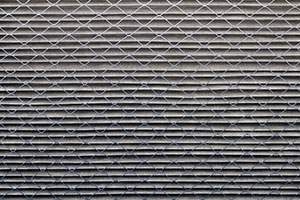Before You Buy Your Next AC Filter, Read This
Date: May 24, 2017
ARTICLES
BEFORE YOU BUY YOUR NEXT AC FILTER, READ THIS
MAY 23, 2017
As is the case with most things these days, there are many choices for air filters for your home. While on the surface this may seem great, it can get confusing. How do you choose the best filter for your home? What are the different rating systems? What materials should the filters be made with? Does a more expensive filter equal better filtration and longer life? What is the best filter for those of us who suffer from allergies? These are all questions consumers have and for good reason. Well, let us help you with those questions!
SELECTING AN AC FILTER
When choosing an air filter for your home, the first thing to look at is the size. This may seem like an obvious statement, but it is important. Air returns are designed with a specific filter size in mind. Having too small of filter allows air to get around it, which leads to fewer particles being caught. This can also put stress on your entire HVAC system. On the other side of the spectrum, trying to cram a bigger filter into the space can produce similar results. In order to fit a bigger filter into the smaller space, the structure has to be modified, which compromises the integrity of the filter.
Filter quality is a question that comes up quite often as well. While most of us may not immediately notice the effects of lower-quality filters, for others—especially those who suffer from allergies—a better quality filter is needed. The typical flat fiberglass air filter is not designed to keep pollutants and allergens out of your home. Aside from large clumps of dirt and dust (20 percent of typical pollutants), this type of AC filter keeps little out of your air conditioning system.
A high-efficiency air filter, on the other hand, can remove 85 percent of pollutants from your home.
But be careful, just because a filter SAYS it filters better, that does not necessarily mean that is the case. Pay attention the rating of the filter, not the words and marketing associated with it. Since we are on the topic of rating systems, be aware that three separate systems exist as well, which are MERV (Minimum Efficiency Reporting Value), MPR (Micro-Particle Performance Rating) and FPR (Filter Performance Rating).
THE MERV RATING
The MERV rating is the main rating system for filters and the one used most commonly. It rates AC filter performance for filtering pollutants and particles. MPR is a proprietary system designed by manufacturer 3M to rate its filters’ performance. FPR was created by The Home Depot. The company rates any filter sold in its stores with this rating using colors and numbers. The system is a very easy way to see which filter is best for you. All three systems are ranked low-to-high in terms of their capability. The higher the number, the more pollutants and particles are captured. And, as the scale climbs, so does the number of types of pollutants and particles it can capture. Lower-ranked filters capture basic things such as dust, lint, and pollen. Higher-ranked filters can capture these things, along with pet dander and mold spores. If you or someone in your house is sensitive and allergenic, a higher-rated filter would be the way to go. If you have any questions on choosing the best filter, please give us a call.
Having the correct filter for your home and your needs is all well and good, but maintenance is still the key. We have written on this topic before, but changing your air filter, regardless of its initial quality, is a must for maintaining your HVAC system in general, but also maintaining the air quality in your home. A general rule of thumb (depending on where you live) is every 30-60 days. Now, depending on your filter and a number of particulates in the air, this can change rather drastically. Another factor can depend on what time of year it is. For instance, here in Phoenix, it gets very dry and dusty in the summer. If changing your AC filter during the winters happened every six weeks or so, you may need to up that to every 30 days, or perhaps even more frequently.
As we have written about in the past, AC filter quality is critical to the air quality in your home, which is important for everybody but will be particularly of interest to families with individuals who suffer from allergies. As you can see, choosing the correct air filter for home is a little more detailed than just grabbing one off the shelf at the store. You need to research filters, know about the needs of your home and come to a conclusion that suits your needs. If you have any questions at all or would like the advice of a professional, be sure to look us up. Our technicians have the knowledge and experience to give you the confidence you need to invest in the correct AC filter for your home.


